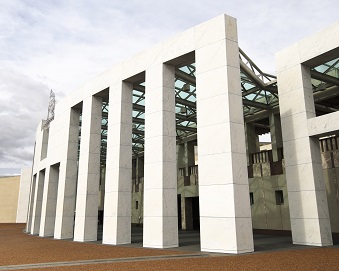ASIS's conduct is subject to strict oversight
Senator the Hon Penny Wong
ASIS is accountable to the Minister for Foreign Affairs, Senator the Hon Penny Wong.
Penny Wong, Senator for South Australia, was sworn in as the Minister for Foreign Affairs on 23 May 2022.
Previously Ms Wong served as Shadow Foreign Minister for six years before the election of the Albanese Government in 2022.
As Minister for Foreign Affairs, Senator Wong seeks to rebuild Australia's reputation as a partner of choice – drawing on all elements of our national power – to build a stable and prosperous region, where sovereignty is respected and the rules of the road are upheld.
Senator Wong lives in Adelaide with her partner and their daughters.

Legislation and privacy
The Intelligence Services Act 2001 ('the ISA') provides the legislative framework for the work of ASIS, AGO and ASD. The legislation outlines the functions of the agencies, including what the agencies may, and may not, do. Under the ISA, the Parliamentary Joint Committee on Intelligence and Security (PJCIS) has responsibility for the review of ASIS's expenditure and administration. The ISA also specifies that the Foreign Minister protect the privacy of Australian citizens. These rules were made in accordance with the ISA and regulate ASIS's handling of intelligence information concerning Australian persons.
In addition to accountability mechanisms stipulated by the ISA, ASIS is also subject to the Public Governance, Performance and Accountability Act 2013 and provisions of other legislation such as the Crimes Act 1914, the Archives Act 1983, Workplace Health and Safety Act 2011, and the Public Interest Disclosure Act 2013. ASIS's financial accounts are fully audited by the Australian National Audit Office (ANAO).
The Inspector-General of Intelligence and Security Act 1996 created the role of the Inspector-General of Intelligence and Security (IGIS). The IGIS is an independent statutory office holder who is empowered to investigate complaints made against ASIS, to review the compliance of ASIS with the laws of the Commonwealth, states and territories, and conduct enquiries into matters which fall within the prescribed functions of that office.
ASIS prepares budgetary information as part of the DFAT portfolio budget statement and portfolio additional estimates statement. Copies of these can be found on the Department of Foreign Affairs and Trade budget web page.
Parliamentary Joint Committee on Intelligence and Security
The Parliamentary Joint Committee on Intelligence and Security (PJCIS) provides a crucial oversight role.
In addition to reviewing the administration and expenditure of ASIS, the PJCIS examines any matters relating to the agencies that have been referred to it by the responsible minister or through a resolution from either house of parliament.
The PJCIS’s review of administration and expenditure is conducted annually and the findings are published in its annual report. The PJCIS may initiate its own enquiries into aspects of intelligence community administration and expenditure. The PJCIS’s focus on budget and administration reflects the complementary role of the Inspector-General of Intelligence and Security (IGIS) who considers legislative and policy compliance and matters of propriety in ASIS's operations.
Inspector-General of Intelligence and Security
The Inspector-General of Intelligence and Security (IGIS) is an independent statutory office holder who reviews the activities of the six Australian intelligence agencies under IGIS jurisdiction. In addition to ASIS, this includes the Australian Security Intelligence Organisation (ASIO), Australian Signals Directorate (ASD), Australian Geospatial-Intelligence Organisation (AGO), Defence Intelligence Organisation (DIO) and the Office of National Intelligence (ONI).
The purpose of this review is to ensure that the agencies act legally and with propriety, comply with ministerial guidelines and directives and respect human rights.
The functions of the Inspector-General are prescribed under sections 8, 9 and 9A of the Inspector-General of Intelligence and Security Act 1986 (IGIS Act).
The Inspector-General can undertake a formal inquiry into the activities of an Australian intelligence agency in response to a complaint or a reference from a minister. The Inspector-General can also act independently to initiate inquiries and conducts regular inspections and monitoring of agency activities.
In conducting an inquiry, the Inspector-General has significant powers which include requiring the attendance of witnesses, taking sworn evidence, copying and retention of documents and entry into an Australian intelligence agency's premises.
The Inspector-General can also conduct preliminary inquiries into matters in order to decide whether to initiate a full inquiry.
Australian National Audit Office
ASIS's financial accounts are fully audited by the Australian National Audit Office (ANAO) and we are subject to the performance audit powers under section 19 of the Auditor-General Act 1997.

